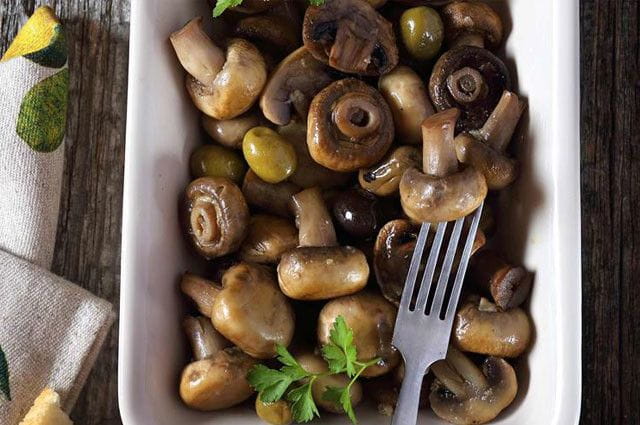Guide to the health benefits of vegetables
From an early age, we are taught about the benefits of eating vegetables as part of a healthy lifestyle and balanced diet. Many nutritionists say that eating at least five portions of fruit and vegetables a day can reap numerous health benefits.
There’s a reason why we are motivated to eat this particular food group early in life. Vegetables are low-calorie, carbohydrate foods rich in vitamins, minerals and antioxidants important for our nutrition. From lowering our risk of heart disease and type 2 diabetes to boosting immunity and improving brain health, the health benefits of vegetables are widely recognised by scientists and nutritionists.
This guide will cover some of the most nutritious vegetables and explain how incorporating them into our weekly menu can help improve our health.
Beetroot benefits

Beetroot has been cultivated throughout the Mediterranean and northern Africa for thousands of years. Grown by the ancient Egyptians, Greeks and Romans, beetroot has a long history as a vegetable used for its health benefits. Rich in folate and potassium, eating beets can help to keep our heart and blood vessels healthy. These vitamins can also reduce our risk of heart disease and stroke, as well as lower blood pressure. Because of its high fibre content, eating beetroot has been linked to promoting the growth of good bacteria in our gut, which is important for our digestive system and helping us to fight disease. Beetroot tastes delicious on its own in our pickled baby beetroots or pairs excellently with a rich creamy sauce like in our recipe for smoked salmon and prawns with dill and beetroot.
Spinach benefits
Spinach is a favourite ingredient in a variety of cuisines, from authentic saag aloo curry to Greek spinach pie. Its versatile cooking properties mean it tastes amazing wilted into sauces and pies, on its own as part of a healthy salad, or blended into a delicious breakfast smoothie bowl. Nutrient-rich spinach is high in antioxidants, as well as vitamins K (important for bone health), A and C. Spinach has also been linked to improving cognitive function and protecting the brain against ageing thanks to its anti-inflammatory effects.
Broccoli benefits

Like other greens, broccoli has a reputation as a superfood. Said to improve bone health, boost immunity and potentially reduce risk of cancer, there are plenty of health benefits to eating broccoli. A source of antioxidants, calcium and Vitamin C, this popular cruciferous vegetable can easily be added to your weekly menu. The slightly bitter taste means it pairs well with a creamy cheese sauce and adds fantastic texture when made into broccoli fritters with garlic yoghurt dip.
Celery benefits
Celery is often used as a base ingredient in simple vegetable soup recipes to add subtle flavour. High in magnesium and iron, celery is really important for nourishing our bodies’ cells and providing them with the sodium they need, especially during the colder months of the year. But the health benefits don’t stop there; celery is also high in calcium, known to support and strengthen our bones. It’s also great for boosting the appearance of skin, working as a natural tonic to reduce the appearance of fatigue. Some research suggests that incorporating more celery into your diet could possibly help to prevent against diabetes, heart problems and arthritis.
Mushroom benefits

Thanks to their strong umami flavours – characterised as savoury, brothy and delicious by the Japanese – mushrooms are often used as a substitute for meat in vegetarian and vegan cooking. There are many different types of edible mushroom such as shiitake, oyster and porcini, but most popular is the button variety which are widely available in supermarkets. Button mushrooms are often used in the flavoursome French dish Provençale mushrooms, whereas large porcini mushrooms are commonly used for stuffed mushrooms. Mushrooms are an excellent source of vitamin D, which is important for our immune system and bone strength. There is also research to suggest that mushrooms can protect our cells against DNA damage and inhibit tumour formation, potentially protecting against cancer.
Sweet potato benefits
It might surprise you to learn that sweet potatoes and regular, white potatoes are botanically unrelated. Sweet potatoes actually belong to the bindweed family, whereas white potatoes are part of the nightshade family. Although both types of potato are nutritious, sweet potatoes are incredibly high in vitamin A, which is essential for good eyesight, maintaining healthy skin, supporting the immune system and producing red blood cells. Unlike white potatoes, eating 80g of sweet potato counts towards one of your five a day. Sweet potatoes are delicious in a rich and creamy sweet potato dauphinoise or are perfect for bulking up a spicy Cajun sweet potato stew. Experts suggest that in order to get the most nutrition out of your sweet potato, don’t peel the skin off. Simply scrub the potato before cooking.
Now that you know all the amazing benefits in different types of vegetables, why not explore our range of vegetarian recipes.
This versatile flavour is used to complement a huge variety of savoury dishes including all kinds of meat and roast potatoes. We only crush and dry fresh whole garlic cloves for a sweet and strong flavour. Our convenient-to-use garlic has a beautifully crisp aroma and classic taste to finish your dishes with fantastic flavour.









